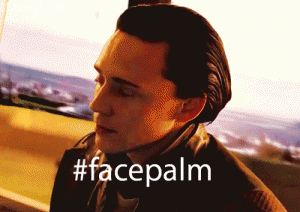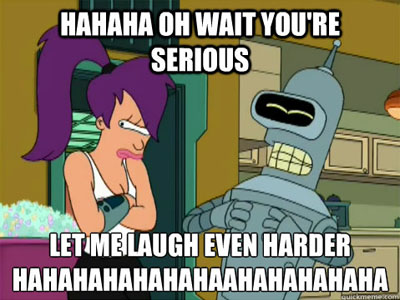Rachel Swirsky is one of the founding editors of PodCastle, served as Vice President of SFWA, and is a prolific author as well. She’s twice won the Nebula award, and has also been nominated for the Hugo, Locus, Sturgeon, and the World Fantasy Awards. Her second Nebula win was for her story “If You Were a Dinosaur, My Love,” which was also nominated for the Hugo.
Like every other award-winning story in existence, you had people who loved this story, and others who didn’t. And just like the rest of us, when faced with a story they didn’t like getting such honors, everyone calmly accepted that different people have different tastes, and looked for worthy work to nominate and support for next year.
Yeah, not so much. A small group set out to harass the hell out of the author, up to and including “jokes” about killing her.
Swirsky responded with a fundraiser, “Making Lemons into Jokes,” which has so far raised more than $700 for Lyon-Martin health services, one of the only providers that focuses on caring for the LGBTQIAA community — especially low-income lesbian, bisexual, and trans people. As part of the fundraiser, she’ll be writing a new story that riffs in part on this year’s Hugo Award mess, “If You Were a Butt, My Butt.”
I asked her to talk a bit about coping with this kind of harassment. Read on for her thoughts.
Also — and this should go without saying — if you start trolling or bullying in the comments, my web goblins will ban your ass so hard you’ll spend the next month farting through your nose.
#
My warm thanks to Jim for letting me come into his space to talk a bit about the fundraiser I’m doing for Lyon-Martin health services through my Patreon. We talked a bit about what subjects I might want to discuss. For Ann Leckie, I wrote about why advice to ignore the bullies misses the point. For Mary Robinette Kowal, I wrote about a few of the many threads in my life that make advocacy important.
Jim asked me to write about how to cope with harassment. That overlaps a little with what I wrote for Ann, but on her blog, I wrote about how to be part of a community that was coping, not how to be an individual who copes with being a target.
A few years ago, there were a lot of pieces circulating about how hard it could get for women online. The VOLUME of hate and harassment; the INTENSITY of it; the terrifying PERSISTENCE. It spoke not of ordinary road-rage-type flame outs, but of something with more emergent structure. Not just drivebys, but pack hounds, stalking victims.
I wrote to a woman who had published such an article. “I so admire your courage,” I told her. “I don’t think I could stand up to it. I’m a weak person.”
It’s strange, I suppose, to identify yourself as a weak person. I am, though. A long time ago, I was on a panel about apocalypses, and someone (I believe it was the keenly insightful Eileen Gunn) said that viewers and readers always identify with survivors, assuming they too would survive.
I don’t. I’d die.
That’s fine. There are zombies or there are Rachel Swirskys and the twain shall not meet, except for the bloody moment of skull-breaking and brain-scavenging. I hope the zombie comes out of it with nagging depression and Star Trek pedantism.
I could write a whole essay interrogating the concept of weakness as I’m using it, of course. But that’s not this essay. I want to talk about how I feel about myself, not culturally critique the feeling.
I am weak because I am vulnerable. It’s dangerous to admit being vulnerable. Bullies go for the vulnerable. That’s one of the things they do.
When I wrote to the woman mentioned above, to tell her that I admired her courage, she expressed concerns. In retrospect, I think she meant that it does not take unusual courage to stand up to harassment. The women who stand up to it are not superhuman. They have done and are doing a difficult thing that no one should have to do, but they undertake that labor as people, with their own strengths and stresses.
I do not need to look at that woman and think, “You are brave. I am not.”
I can look at her and think, “Courage is work you do, not who you are.”
(A complication: Some people really are less vulnerable and more buoyant than others. Often, they’re the ones who speak more, which is perfectly natural. They do everyone a great favor by using their resources and energy to speak out. But it can feel intimidating sometimes, which is no one’s fault.)
Personally, I complain to friends a lot. I really, really like listening to the audio recording of Alexandra Erin’s John Scalzi Is Not a Very Popular Author, and I Myself Am Quite Popular. I subtweet; over time, that’s mostly become overt tweeting. I suspect specific solutions are very personal.
This I’m sure of: for me, it feels better to talk than stay silent.
If you’re vulnerable as I am, and you become a target as I have, this is the best I know to give you: You’re not alone.
Don’t count yourself out.
Best,
Rachel









